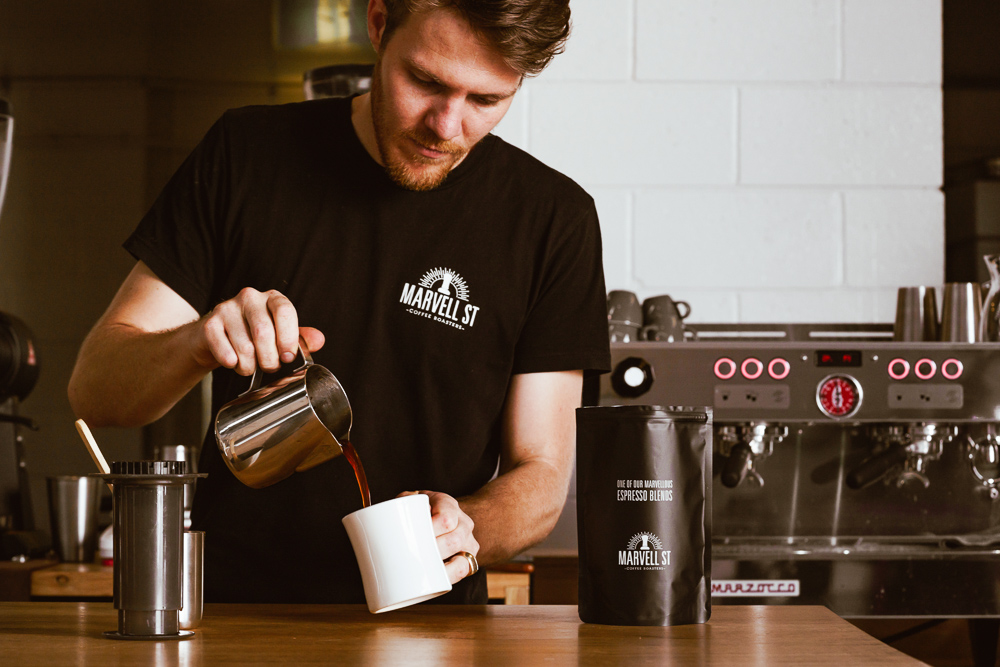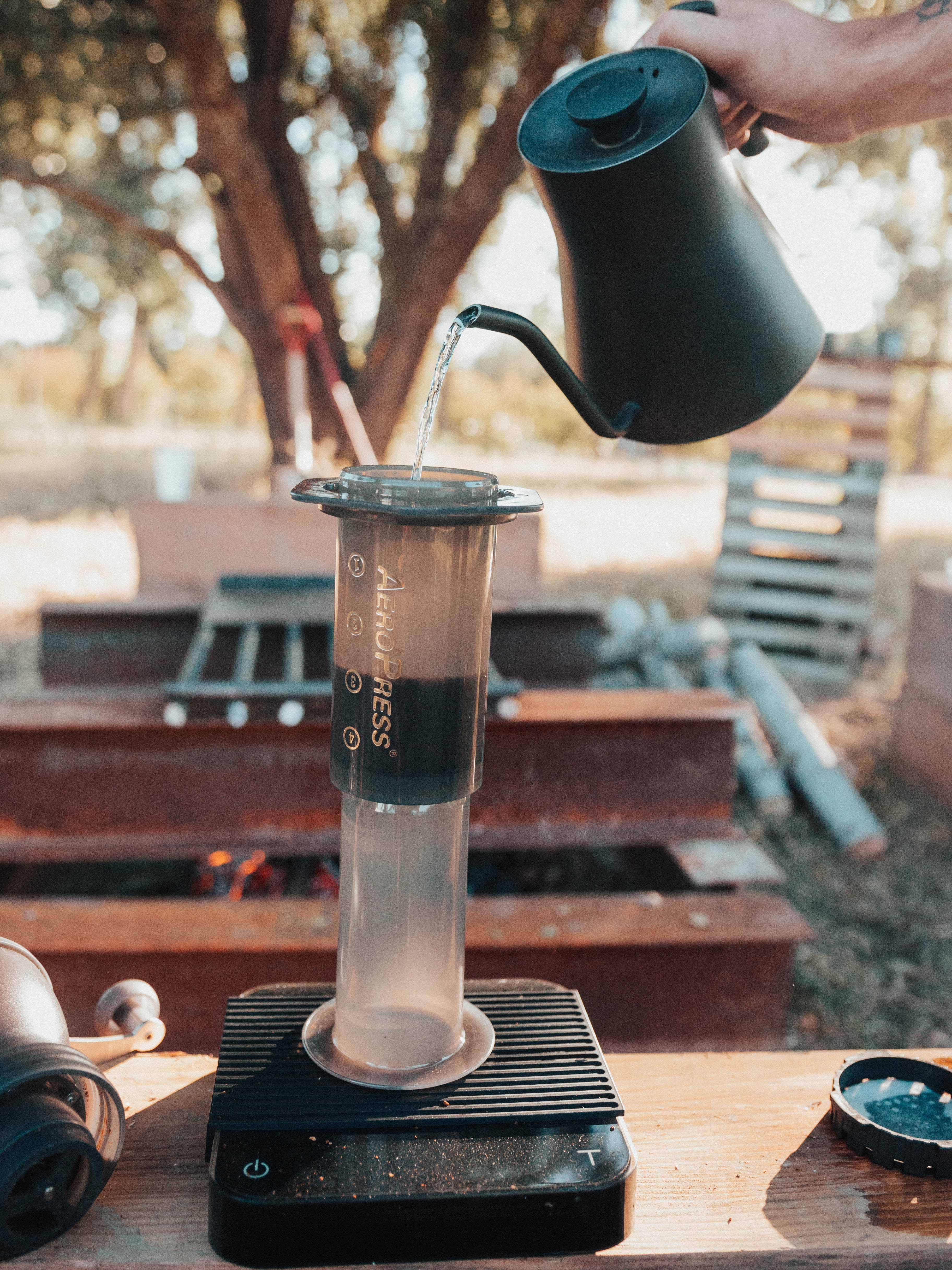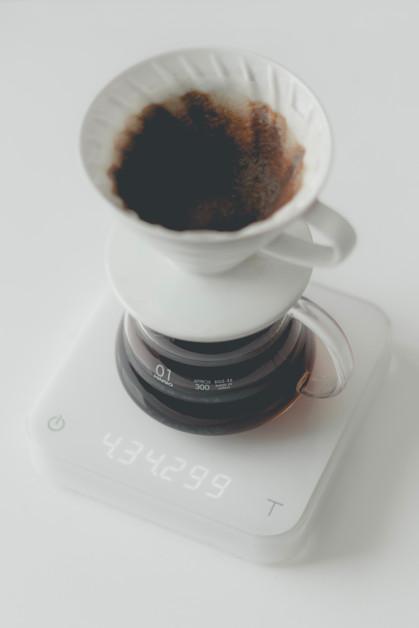Set up for success
Posted by Fergus on 10th Feb 2020
In my years spent behind the coffee machine I have had countless conversations with customers about getting the most out of their coffee when brewing at home. What often strikes me is how much mystery seems to surround the home brewing process, and often the first thing to be blamed for a poor cup of coffee is the coffee itself. However with a few key bits of kit and a basic understanding of brewing principles you can make sure every cup you drink in the morning is liquid gold.

Make it less random:
How often would you make a cake at home and guess the amount of each ingredient you’re to use? Some things lend themselves to a slapdash cavalier approach and some things require a little more finesse. If you wake up bleary eyed and throw a random amount of coffee into your brewer of choice, fill it with a random amount of water and let it brew for a random amount of time then guess what, your results are going to be random! The key to making consistently epic coffee at home is repeatability, and to repeat things you need to know your variables.
The main variables are dose, yield and time and with a couple of basic tools you can easily control them.
To make it less random do yourself a favour and invest in a decent set of scales, a hand grinder or better yet, an electric burr grinder, and start weighing how much coffee and water you are using and grinding your coffee on demand (pre ground coffee goes stale much quicker). Choose your weapon of choice, be it aeropress, v60, french press, kalita wave, chemex, clever dripper (the choices are almost endless), whichever you choose the principle is the same, by eliminating the variables you reduce randomness and increase repeatability, so when you nail that morning brew you can nail it again the next day, because you know how you brewed it!
A starting point:
You have your gear now let’s put it to use! Let’s think about brewing coffee in terms of a recipe. You have two main ingredients, coffee and water, how much of each you use will have a big impact on your resulting brew (more on that in a future post), for now though let's follow the SCA guidelines of 60g of coffee to a litre of water, or 60/1L.
Now if you are using a single cup brew method you don’t need a litre of coffee, so let's scale that recipe down a little. Let's say we want to brew a 200g cup of coffee, 60/1L is a brew ratio of 1:16.6 (1000/60=16.6), for every 1 part of coffee there are 16.6 parts of water. To find out how much coffee we need for our 200g brew we would take 200 and divide by 16.6, 200/16.6=12. We want 12g of coffee for our 200g beverage. The beauty of brewing coffee this way is it allows you to scale your brews knowing you will get a similar tasting coffee. For example, say it’s sunday morning and you know 200g of coffee just ain't gonna cut it after the previous night’s adventures, you need more to get you through, the morning, say 300g, well you would just take 300/16.6=18, you know if you use 18g of coffee you will get a very similar cup as your favourite recipe, just more of it, winning.
This may all sound a bit overwhelming at first but after you get the hang of using your scales and a brew ratio you enjoy then you will find it easy to adjust your recipe depending on your brew method or size.
Your next variable is time, make sure you use a timer and time your brews, i use the one of my phone.
For aeropress i find a total brew time of 1:00-1:30 yields good results, for pour overs anywhere from 3:00-4:00 depending on your brew ratio and grind setting, and for the trusty french press i like to give it a nice steep, somewhere around the 10-14 minute mark.

Troubleshooting basics:
So now you have eliminated your main variables this allows you to troubleshoot problem brews with much more clarity and confidence. Let’s go through the basics:
- Coffee tastes sour, too acidic, hollow or lacks sweetness? Grind finer, extract more flavour.
- Coffee tastes dry, astringent, or bitter? Grind coarser, extract a little less.
- Coffee tastes too strong and heavy? Adjust your dose and use a little less coffee.
- Coffee tastes thin, weak, or lacks body? Adjust your dose and use a little more coffee
A fun thing to do is keep a log book, noting any changes you make to your recipes and logging the results, you will quickly develop a taste for what you like and how to achieve it and begin to understand the relationship between dose and grind. If you do make a change, be it grind or dose or brew time, only change one element at a time, that way you know what effect that particular change is having on your brew.
Set up for success:
- buy a scale
- weigh your coffee
- weigh your water
- time your brews
- use fresh boiled water
- keep a log!
- experiment!
As always, we are here to help! So please get in touch if you have any questions about your home brewing, we love sharing our knowledge with passionate home brewers. If you are an aeropress user check out Mike giving you a step by step run through in our aeropress brew video.
Brew with confidence!

